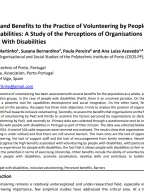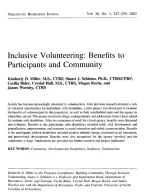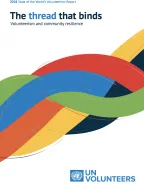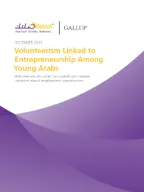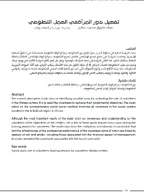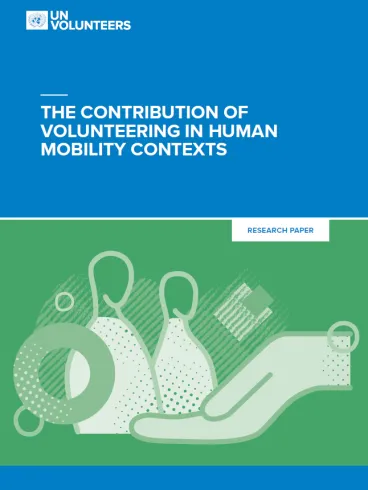
The Contribution of Volunteering in Human Mobility Contexts
Fast Read
This report explores the understudied role of volunteers and volunteer-involving organizations within human mobility contexts. It provides evidence on how volunteering helps fill critical gaps in humanitarian assistance and protection. These efforts include supporting gender equality and inclusion, preventing and responding to disaster displacement and facilitating migrant integration and settlement.
The report also examines how volunteers influence migration policy and governance at various levels as they raise awareness about the challenges surrounding human mobility. In addition, volunteer-involving organizations are encouraging supportive remedies based on the principles of dignity and human rights, as well as participating in social activism.
Synthesis
A record number of people are currently on the move due to emergency situations, including armed conflicts, natural disasters, famine, epidemics and other circumstances. As of mid-2024, it was estimated that 122.6 million people worldwide were displaced because of these factors. Populations on the move face a multitude of risks: violence, exploitation, discrimination and reduced access to basic services. Volunteers play a crucial role in addressing the challenges associated with migration. They support protective, inclusive responses as well as foster long-term development and resilience. They also help relieve the disruptive effects of human mobility, mitigate migration-related risks and vulnerabilities and work toward durable solutions that prioritize the safety, dignity and well-being of individuals and communities.
Special attention is given to migrant volunteers’ contributions when providing humanitarian assistance. For example, they play an important role in promoting social cohesion and integration between migrants and host communities. This report also considers how volunteering intersects with volunteers’ livelihoods, offering recommendations to ensure that volunteering practices do not inadvertently heighten their economic precarity or lead to exploitation.
The research also assesses and contextualizes the integration of volunteering into national and international migration governance and development plans, policies and strategies. It demonstrates how United Nations Member States and United Nations agencies can leverage volunteering by and for migrants to advance more equitable and sustainable responses to human mobility challenges.
This is critical to achieving the 2030 Agenda for Sustainable Development, particularly in relation to SDG (Sustainable Development Goal) 10.7 on the facilitation of orderly, safe and responsible migration and SDG 16 relating to the promotion of peaceful and inclusive societies.













